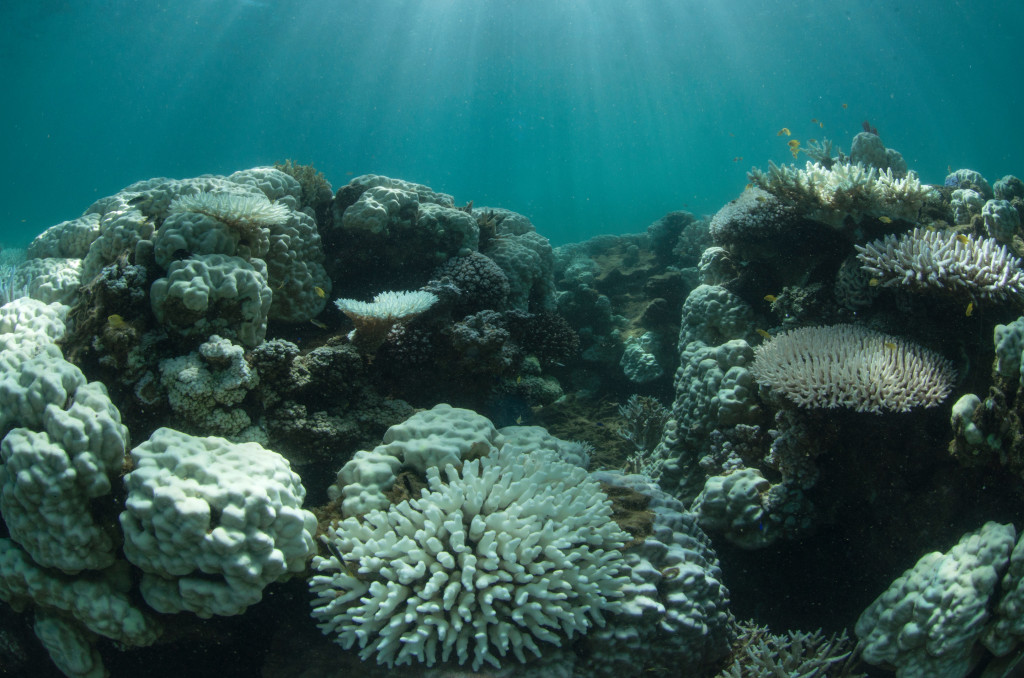By Mai Maheigan | Development and Communications Coordinator
For many of us, coral reefs are vacation destinations; places we feel lucky to visit. We plan our trip and packing lists carefully, and bring clothes and sunscreens to protect our skin from the intensity of the equatorial sun, but as we reported in January, sunscreen is not as safe for corals as we once thought.

Photo Credit: XL Catlin Seaview Survey
This June, many of the world’s top coral reef scientists met at the International Coral Reef Symposium in Hawaii to discuss the challenges facing coral reefs. Sunscreen and other personal care product ingredients were hot topics. Of particular concern to scientists was oxybenzone, a chemical used in sunscreens to protect our skin from damaging UV light. Oxybenzone is bad news for corals, harming them by;
Perhaps most alarming is that all of this can happen with very low doses of the chemical, only 62 parts per trillion (equivalent to one drop of water in 6.5 Olympic swimming pools)! Sunscreen can enter the water directly from our bodies while swimming, or it can wash off the sand at the beach. Spray-on sunscreens especially create a chemical cloud that often misses the skin and settles on the sand. As the tide comes in, all these chemicals wash into the ocean; one study found higher oxybenzone concentrations in the ocean at high tide than low tide. Sunscreen chemicals can also enter the ocean in treated wastewater after it is washed off in the shower or excreted through urine.
So what can we do? This session shared some good news: we can protect ourselves from the sun and protect coral reefs from harmful chemicals. Just use these simple guidelines:
If we all follow these guidelines, the next time you’re on vacation gliding over a picturesque coral reef, you can snorkel with the peace of mind knowing that you aren’t the source of any reef-harming chemicals.
Project reports on GlobalGiving are posted directly to globalgiving.org by Project Leaders as they are completed, generally every 3-4 months. To protect the integrity of these documents, GlobalGiving does not alter them; therefore you may find some language or formatting issues.
If you donate to this project or have donated to this project, you can receive an email when this project posts a report. You can also subscribe for reports without donating.
Support this important cause by creating a personalized fundraising page.
Start a Fundraiser